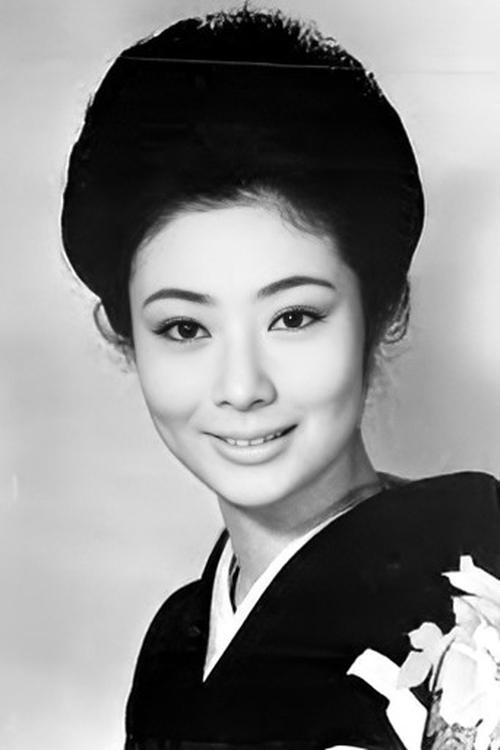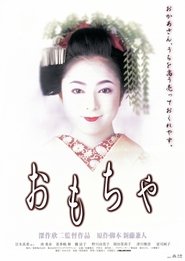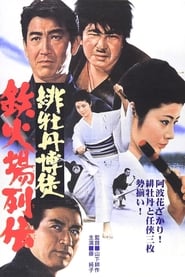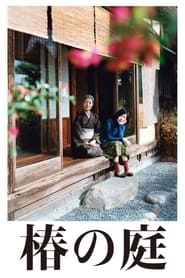detail profile sumiko fuji

Sumiko Fuji
Junko Fuji
atau dikenal sebagai
Riwayat Hidup
Sumiko Fuji (富司 純子 Fuji Sumiko, born 1 December 1945) is a Japanese actress.
The daughter of a producer at the Tōei studios, she originally began acting under the name Junko Fuji (藤 純子), becoming famous as the female lead in yakuza films against such stars as Ken Takakura and Kōji Tsuruta.
She even starred in her own series as the knife-wielding gambler Red Peony (the "Hibotan Bakuto" or "Red Peony Gambler" series).
Initially retiring in 1972 after getting married, she began appearing on TV in 1974 using the name "Sumiko Fuji.
" She later returned to films and expanded her acting repertoire.
She won a Blue Ribbon Award for best supporting actress in 1999 and 2006.
She is married to the kabuki actor Onoe Kikugorō VII and is the mother of the actress Shinobu Terajima and the kabuki actor Onoe Kikunosuke V.
Description above from the Wikipedia article Sumiko Fuji , licensed under CC-BY-SA, full list of contributors on Wikipedia.
Info Pribadi
Peran Yang Di Mainkan Sumiko Fuji
 Ruka is a young girl whose...
Ruka is a young girl whose...Children of the Sea 2019
Ruka is a young girl whose parents are separated and whose father works in an aquarium. When two boys, Umi and Sora, who were raised in the sea by dugongs, are brought to the aquarium, Ruka feels drawn to them and begins to realize that she has the same sort of supernatural connection to the ocean that they do. Umi and Sora's special power seems to be connected to strange events that have been occurring more and more frequently, such as the appearance of sea creatures far from their home territory and the disappearance of aquarium animals around the world. However, the exact nature of the boys' power and of the abnormal events is unknown, and Ruka gets drawn into investigating the mystery that surrounds her new friends.
 In the aftermath of the 2011 Thoku...
In the aftermath of the 2011 Thoku...Casting Blossoms to the Sky 2012
In the aftermath of the 2011 Tōhoku earthquake and tsunami, a journalist arrives in Nagaoka, a city decimated during a WWII air raid and by the 2004 Chūetsu earthquakes, to report on the disaster; there, she learns about the experiences of its inhabitants and stumbles upon a stage play written by an enigmatic student of her ex-boyfriend.
 A lifesize inflatable sex doll suddenly...
A lifesize inflatable sex doll suddenly...Air Doll 2009
A life-size, inflatable sex doll suddenly comes to life one day. Without her owner knowing, she goes for a walk around town and falls in love with Junichi. She starts to date Junichi and gets a job at the same store where he works. Everything seems to be going perfectly for her until something unexpected happens.
 A student tries to fix a...
A student tries to fix a...Summer Wars 2009
A student tries to fix a problem he accidentally caused in OZ, a digital world, while pretending to be the fiancé of his friend at her grandmother's 90th birthday.
 Chiba appears seven days before a...
Chiba appears seven days before a...Sweet Rain: Accuracy of Death 2008
Chiba appears seven days before a person dies an unexpected death. His job is to observe the person for seven days then decide either to ‘execute’ or ‘pass over’. Today, again, in the rain, he waits. His subject, her death due in seven days, is Kazue Fujiki. She works for a manufacturing company in the complaints department. Exhausted after her day, she emerges from her office. It’s time for the Reaper to go to work.
 Inugami Sahei who built up the...
Inugami Sahei who built up the...Murder of the Inugami Clan 2006
Inugami Sahei, who built up the wealth of the Inugami Clan, passes away, leaving a will with Furudate, his legal adviser, for his daughters Matsuko, Takeko and Umeko, all of whom have different mothers, and for their sons, as well as for Nonomiya Tamayo, the granddaughter of a person to whom Sahei feels heavily indebted. The will states that all his assets are inherited by Tamayo alone, on the condition that she marries one of the sons of the daughters. Furudate's assistant learns the content of the will, and seeks advice from Kindaichi Kosuke, a private detective, as he senses the air of unease. Shortly afterwards, murders start to occur one after another in the clan.
 Set in the late 1950s when...
Set in the late 1950s when...The Geisha House 1999
Set in the late 1950s, when geisha culture was threatened by moral crusades, it tells the story of Omocha (Miyamoto Maki), a young girl who sees the geisha life as a way to lift her poverty-stricken family from their hand-to-mouth existence. Through her eyes, we see the protocols and complex financial relationships which dictate the running of the geisha house. Fukasaku's film is a work of great delicacy with moments of hypnotic beauty, and his tender direction, often touched with a sense of wonder, fills the screen with lovingly constructed scenes. At its heart is the poignant situation of the women who must sacrifice their normal relationships to live an ambiguous life in which they are a key part of society while being kept, for the most part, on its periphery, like perpetual mistresses.
 With World War II is coming...
With World War II is coming...The Last Kamikaze 1970
With World War II is coming to its end and Japan nearing defeat, Japanese military leaders step up suicide attacks on Allied ships. Toei legend Koji Tsuruta stars as a Kamikaze squad leader who has second thoughts about suicide runs. He becomes torn between his own morality and his duty to his country when he must deal with a pilot under his command who refuses to complete his mission.
 Junko Fuji returns as Oryu the...
Junko Fuji returns as Oryu the...Red Peony Gambler: Biographies of a Gambling Room 1969
Junko Fuji returns as Oryu the Red Peony, a wandering female yakuza on a soul-searching journey after the death of her father. After collecting her sickly follower from jail, she is taken in by a fishing village. Feeling indebed to their generosity, she stays to work for the village and promises to leave her yakuza ways behind. When a dispute breaks out for the gambling rights to a local festival, the villagers are harrassed by a gang of thugs. When the harrassment turns violent, Oryu must decide wither to keep her promise or protect the villagers.
 The third chapter of the Red...
The third chapter of the Red...Red Peony Gambler: Flower Cards Game 1969
The third chapter of the ‘Red Peony Gambler’ saga depicts the happiness and sadness of Red Peony Oryu’s life as she seals her femininity with a red peony tattoo and lives in world of chivalry and honor of the yakuza. This story takes place in the middle of the Meiji era in Nagoya. Oryu is wandering the country, training herself to reinstate her family name. With a written recommendation from Kumatora, she appears at the door of the Nishinomaru family. At the same time, the family is preparing for the gambling competition at the Netsuda Shrine Festival, which they have been hosting for generations. Meanwhile, the crooked Kinbara family is plotting to take over the competition. And now Oryu is forced to get involved in the struggle…
 A local yakuza boss of a...
A local yakuza boss of a...Red Peony Gambler: Gambler's Obligation 1968
A local yakuza boss of a silk farming town shows kindness to the wandering gambler Oryu by letting her stay at his residence. When a rival yakuza gang, who wants to take over the town's businesses, murders him, Oryu is obliged to protect his children and business.
 Ryuko was raised by her father...
Ryuko was raised by her father...Red Peony Gambler 1968
Ryuko was raised by her father, a gambler named Senzo Yano in Kumamoto, Kyushu, after her mother died when she was little. When she turned 18 years old, her father was attacked and killed by a stranger in alley. Ryuko then dissolves her yakuza family, and, carrying the wallet left by the killer, she sets out on a journey to avenge her father's death. Five years later, she wanders the nation, known only as! Red Peony Oryu who has a red peony tattooed on her shoulder and has the defiance and courage of a man. She meets Katagiri - a loner gambler, Kumatora - boss of a family in Shikoku, and Otaka - female boss of the Doman Family in Osaka. With their help, she finally catches up with the man who murdered her father.
 The film is dedicated to the...
The film is dedicated to the...The Young Eagles of the Kamikaze 1968
The film is dedicated to the souls of flight school graduates killed in World War II. Young boys dream about becoming pilots and apply to flight schools. However, the flight schools have extremely demanding, harsh training, and once they finally become pilots, they must become suicide bombers and give their lives for their homeland.
 A sadistic Daimyo feudal lord rapes...
A sadistic Daimyo feudal lord rapes...13 Assassins 1963
A sadistic Daimyo (feudal lord) rapes a woman and murders both her and her husband, but even when one of his own vassals commits suicide to bring attention to the crime, the matter is quickly hushed up. Not only will there be no punishment, but because the Daimyo is the Shogun's younger brother, he will soon be appointed to a high political position from which he could wreak even more havoc. Convinced that the fate of the Shogunate hangs in the balance, a plot is hatched to assassinate the Daimyo. The two most brilliant strategic minds of their generation find themselves pitted against each other; one is tasked to defend a man he despises, and has a small army at his disposal. The other is given a suicide mission, and has 12 brave men. They are the 13 Assassins.
 Kinuko was married to her husband...
Kinuko was married to her husband... During the Edo period a gifted...
During the Edo period a gifted... Schoolteacher Yohei is married to Miyoko...
Schoolteacher Yohei is married to Miyoko... Young women in a small Japanese...
Young women in a small Japanese... Oryu searches for blind child she...
Oryu searches for blind child she... A story of young students trained...
A story of young students trained...